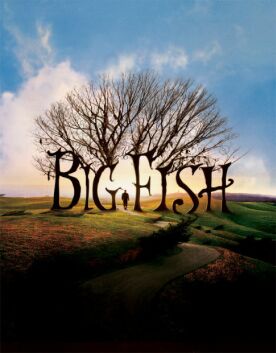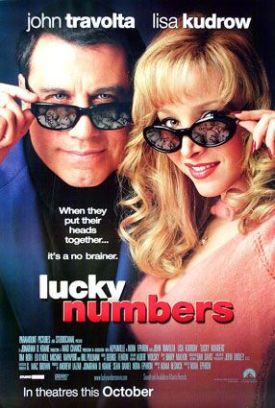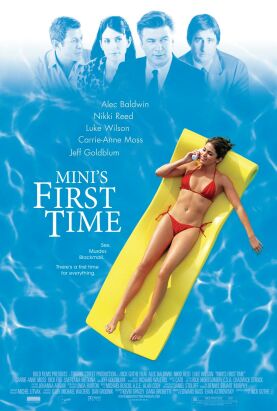Big Fish
Give a part requiring a thick (American) Southern accent to a Briton, and the chances are he will overact, especially if he is Albert Finney. Tim Burton, directing John August’s adaptation of Daniel Wallace’s novel Big Fish (originally subtitled A Novel of Mythic Proportions) as a typically Burtonian exercise in whimsey, has not only Finney — an appropriate actor, I guess, for the part of a man who in the end turns into a fish — but also Ewan MacGregor as his younger self and Mrs Burton, otherwise known as Helena Bonham-Carter, as one of the two love-interests. All of them go to town on the Alabama corn-pone.
Old Edward Bloom (Mr Finney) is dying, and his estranged son, Will (Billy Crudup), returns from Paris, where he works as a journalist, to be with him in his final days. The reason for their estrangement is a long and incomprehensible fish story involving his wedding ring and the birth of his only son which the old man has been telling and retelling for years, always to the embarrassment of the son, who finally tells his father that he is also embarrassing himself. On Will’s return to Alabama at the summons of his mother, Sandy (Jessica Lange), he retains his militant opposition to this and all his father’s other and equally fantastical stories, which he keeps insisting are “lies.”
Readers will probably be already aware that, in the movies, anyone who professes skepticism about obvious fantasies is sure to be shown up and discredited while the fantasies are shown to be true. The magic pixie dust must settle in the skeptic’s eyes as well as everyone else’s. It’s one of the rules of Hollywood. So it is giving nothing away to say that dad’s tall tales of his life, re-enacted for us here by Mr MacGregor as young Edward and Alison Lohman as young Sandy, turn out to be true. Or do they? It is enough for Mr Burton’s purposes that the doubt as to their truth or falsehood is created in Will’s mind, for under its cover they are able to sneak a witch, a giant (Matthew McGrory), an enchanted village, a circus whose ringmaster (Danny DeVito) is a werewolf, a bank-robbing poet (Steve Buscemi), a pair of Chinese Siamese twins called Ping and Jing (Ada and Arlene Tai) and other wonders into a story whose moral is that you should believe your lovable old yarn-spinning pappy because you never know how much of what he tells you might just be true.
The lesson would have been more persuasive, it seemed to me, if the stories themselves had been a little better. Rarely do they rise to the level of enchantment they aspire to, and most of Old Edward’s homespun sayings fall flat. With a thud. The moral of the fish story that gives the film its name, for instance is this: “Sometimes the only way to catch an uncatchable woman is to offer her a weddin’ ring” — something which it hardly needs a mysterious, gold-ingesting pisciform monster to teach most of us. Likewise, we could probably have figured out for ourselves the fact that “the biggest fish in the river gets that way by never getting caught,” and I remain somewhat dubious of the werewolf’s dictum that “most things you consider evil or wicked are simply lonely, and lacking social niceties.” Such doubtful wisdom makes Will’s voiceover assurance that for him it became in his father’s last days “impossible to separate fact from fiction, the man from the myth” sound even more like a banality than it would have done in any case.
On the plus side, the picture has a certain charm, as do the actors, and it offers to those with a high tolerance for this toxic combination of Burtonian whimsey and the Southern grotesque some not unaffecting attempts at presenting archetypal and mythic situations, most notably Edward’s Jacob-like labors under the direction of the werewolf-ringmaster to win the woman that he loves and his faithfulness to her even in the face of considerable temptation from the Chinese twins and Miss Bonham-Carter. Mr McGrory’s portrayal of the giant is also occasionally charming, but you’ve got to think that any film in which this guy is less weird than most of his surroundings is obviously in trouble.
Discover more from James Bowman
Subscribe to get the latest posts to your email.







